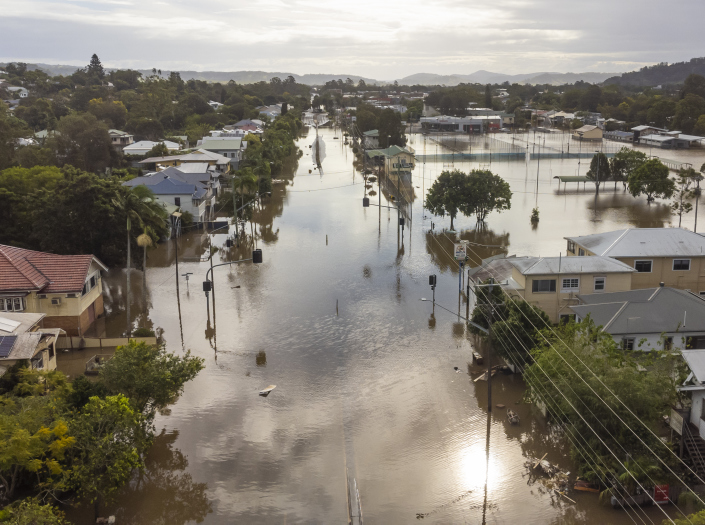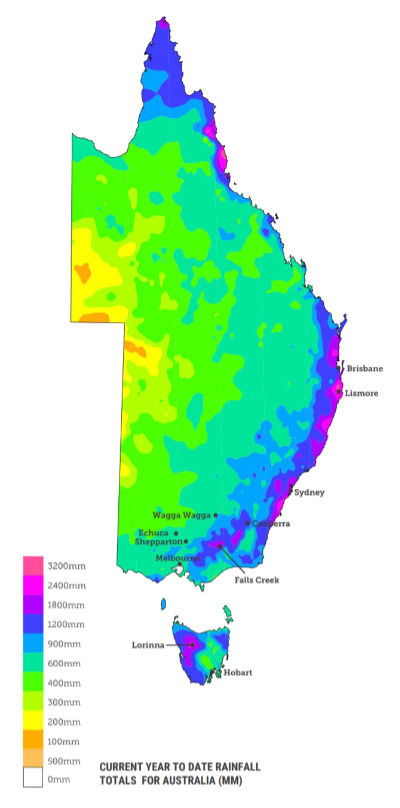Has Australia Gone Troppo?

The Australian slang word once used to describe how some people go crazy due to the tropical (troppo) climate can now be used to describe the country’s reaction to climate activists. Climate activist, Deanna Coco, who blocked traffic on Sydney Harbour Bridge for a grand total of 25 minutes has been sentenced to 15 months in prison, with a non-parole period of eight months.
Such a disproportional response has been possible because earlier this year, New South Wales, Victoria and Tasmania all introduced tough new laws increasing punishments for non-violent protesters with larger fines and the option of jail time.
This makes Australia look so stupid in the eyes of the world. Why?
The Australian Climate Council recently launch a report titled: THE GREAT DELUGE: AUSTRALIA’S NEW ERA OF UNNATURAL DISASTERS. The report states, “2022 will be remembered as the year of the Great Deluge, when record-breaking rain and floods lashed large parts of Eastern Australia, causing untold devastation for Australians and our economy.” And goes on to say, “This report is a stark warning that this is not over yet, and a call for all levels of government to speed up their emission reductions and disaster preparation efforts. This year has seen large parts of Eastern Australia experience record-breaking rainfall and floods. From Queensland down to Tasmania, extreme weather events have taken people’s lives, led to the evacuation of communities, damaged homes, belongings and businesses, destroyed crops and livestock, and saddled us with billions of dollars in rebuilding costs.”
I live in Victoria and this winter has brought severe and ongoing flooding. This year’s wet weather has resulted in roads from Queensland to Tasmania being cut off for days and in some cases, on flood plains, they can be cut off for weeks. Where I live 75% of the roads have been damaged by rain and floodwater.
The response of state governments has been to introduce tough new laws increasing punishments for non-violent protesters with larger fines and the option of jail time! The biggest fear for governments is people who have maintained their freedom to act and that these people take action against government policy and when governments move too slow.
So, let’s compare 25 minutes of protest with days, weeks and even months of traffic disruption because of flooding.
Given how troppo Australia has demonstrated itself to be in implementing these new laws against activists, will the next step be locking up a river or creek for impeding ‘business as usual’? After all, in the end it will be the weather that is the most active climate protester of them all and its protest won’t be non-violent either.

For those state politicians who are looking for a precedent to charge our waterways you can always look to the medieval laws that allowed animals to be prosecuted. The so-called ‘medieval animal trials’ were cases in which animals were accused and sentenced for harming persons or property. For instance, a domestic animal (generally pigs, horses, and bulls) could be charged for killing a human and be condemned to death, usually by hanging.
I’m not sure how you will hang a river for blocking a road and holding up business-as-usual, I suppose you could always poison it; oh wait, that’s happening already!
Thankfully there are some sane people left in Australia who are pointing out that the jailing of Deanna Coco would be ridiculous if it wasn’t so tragic. Sophie McNeill, of Human Rights Watch, said it was evidence climate protesters faced vindictive legal action restricting their right to peaceful assembly and expression. Coco’s lawyer, Mark Davis, pointed out that only one of five lanes of southbound traffic was blocked.
Internationally, Australia has come in for justifiable criticism. Clément Voule, the UN’s special rapporteur on freedom of association and peaceful assembly, saying he was “alarmed” by the sentence and the court’s refusal to consider bail for her appeal until March. “Peaceful protesters should never be criminalised or imprisoned,” Voule said.
However, the NSW premier, Dominic Perrottet, welcomed the minimum eight-month jail sentence which he described as “pleasing to see”. Such statements should make the parents and grandparents of children likely to become peaceful activists, to save the planet and their future, very worried. Let’s hope that none of Dominic Perrottet’s seven children become climate and environmental activists in the future because it doesn’t look like they would get any support from their dad if their activities landed them in jail.
Certainly, Australian federal and state governments’ actions in addressing climate change and biodiversity loss have been slower than glacial. Corporate capture of our governments has been entrenched over decades.
But this latest round of government legislation, undermining people’s right to peaceful protest, may lead to something much more difficult. When people can do nothing else all they can do is withhold their labour. Strikes are increasing in countries around the world. More-and-more people are withholding their labour because their government’s policies have triggered survival anxiety, as they have to make a choice between heating their homes or putting food on the table. The same government policies driving social disadvantage are also driving biodiversity loss and climate uncertainly.
If government follows that same path it has taken in jailing those who cause minimal disruption to business-as-usual by peacefully demonstrating their concerns for the planet, will the next step be jail time for the people who block roads because they can’t pay their energy bills?
We are on a slippery slope here; and common sense, empathy and compassion need to prevail.

Lynn Johnson is a physicist by education and has worked as an executive coach and a strategy consultant for over 20 years. In her work she pushes for systemic change, not piecemeal solutions, this includes campaigning for modernising the legal trade in endangered species, to help tackle the illegal wildlife trade.





